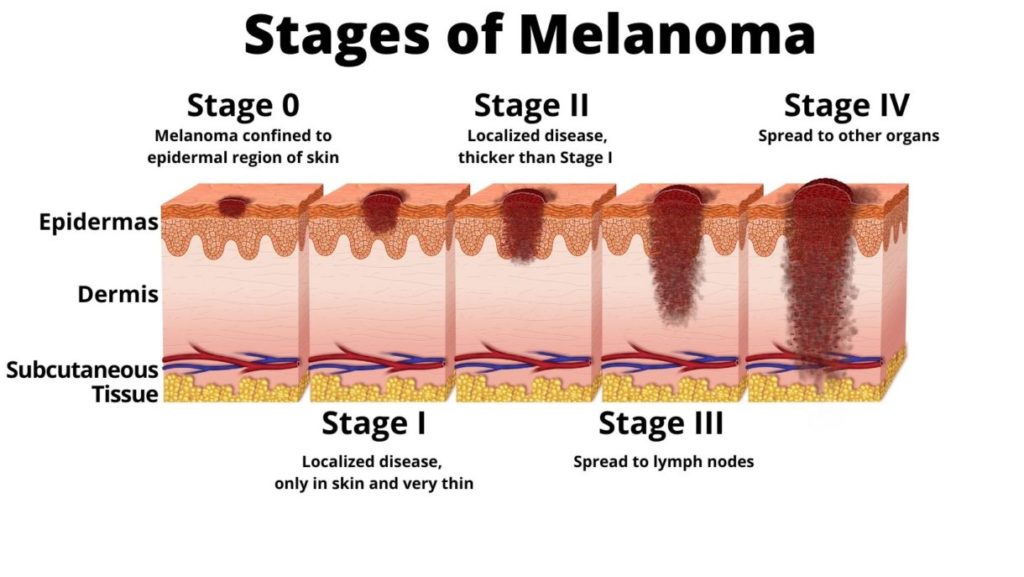Leave a Comment:
1 comment
[…] Metastatic Melanoma and Angiogenesis […]
Reply
Learn about conventional, complementary, and integrative therapies.
Dealing with treatment side effects? Learn about evidence-based therapies to alleviate your symptoms.
Click the orange button to the right to learn more.

If you have been diagnosed with melanoma your prognosis depends largely on the ability for your cancer to metastasize aka spread. Once tumor cells spread, they then grow. In order for tumors to grow, they need to sprout blood vessels. This concept, angiogenesis, is central to all cancers. Even blood cancers. Metastatic Melanoma (MM) is considered to be incurable by conventional oncology.
My cancer, myeloma, is also considered to be incurable. I mention this because I have managed my myeloma since my diagnosis in early 1994. While I understand why conventional oncology relies on the FDA for the study and approval of cancer therapies, I also understand that survivors of incurable cancers must look beyond conventional oncology if they are to manage their cancer for the long term.
As you can see from the illustration to the left, skin cancer is complicated. Once melanoma spreads or becomes metastatic the prognosis of the patient worsens.
Though there are few conventional (FDA approved) therapies for the treatment of metastatic melanoma, there are a number of evidence-based, non-toxic therapies that are both anti-angiogenic and which will reduce the risk of skin cancer spreading.
Have you been diagnosed with skin cancer? What therapies have you already undergone or are considering undergoing?
To Learn More about Angiogenesis and Cancer- click now
I am both a long-term cancer survivor and cancer coach. Scroll down the page, post a question or comment and I will reply to you ASAP.
thanks
Recommended Reading:
“Abstract-The main cause of death in melanoma patients is widespread metastases. Staging of melanoma is based on the primary tumor thickness, ulceration, lymph node and distant metastases…
It is generally believed that a neoplastic process progresses through several stages: tumor initiation, progression, invasion and then metastasis…
Vessel formation–
Formation of new vessels in primary and metastatic tumors is of extreme importance. This is thought to occur through the recapitulation of embryonic vessel formation (i.e., vasculogenic mimicry). This is defined more strictly as endothelial-like features being acquired by tumor cells. The tumor microenvironment, that is, interstitial fluid pressure, pH, cytokines, laminin, collagens, growth factors, nutrients and oxygen, is thought to stimulate angiogenesis through different mechanisms…
With regard to melanoma metastases in other sites, the number of microvessels in melanoma metastases in the brain was lower than the number seen in metastases to the breast or lung, and their diameter was intermediate when compared with these two types of metastases [85]. This finding was unexpected, since brain melanoma metastases are characterized by extremely frequent hemorrhage…”
“Cutaneous melanoma remains the most lethal of the primary cutaneous neoplasms, and although the incidence of primary melanoma continues to rise, the mortality from metastatic disease remains unchanged, in part through advances in treatment.
Major developments in immunomodulatory and targeted therapies have provided robust improvements in response and survival trends that have transformed the clinical management of patients with metastatic melanoma.
Additional advances in immunologic and cancer cell biology have contributed to further optimization in
(1) risk stratification,
(2) prognostication,
(3) treatment,
(4) toxicity management, and
(5) surveillance approaches for patients with an advanced melanoma diagnosis.
In this review, we provide a comprehensive overview of the historical and future advances regarding the translational and clinical implications of advanced melanoma and share multidisciplinary recommendations to aid clinicians in the navigation of current treatment approaches for a variety of patient cohorts…”
[…] Metastatic Melanoma and Angiogenesis […]
Reply